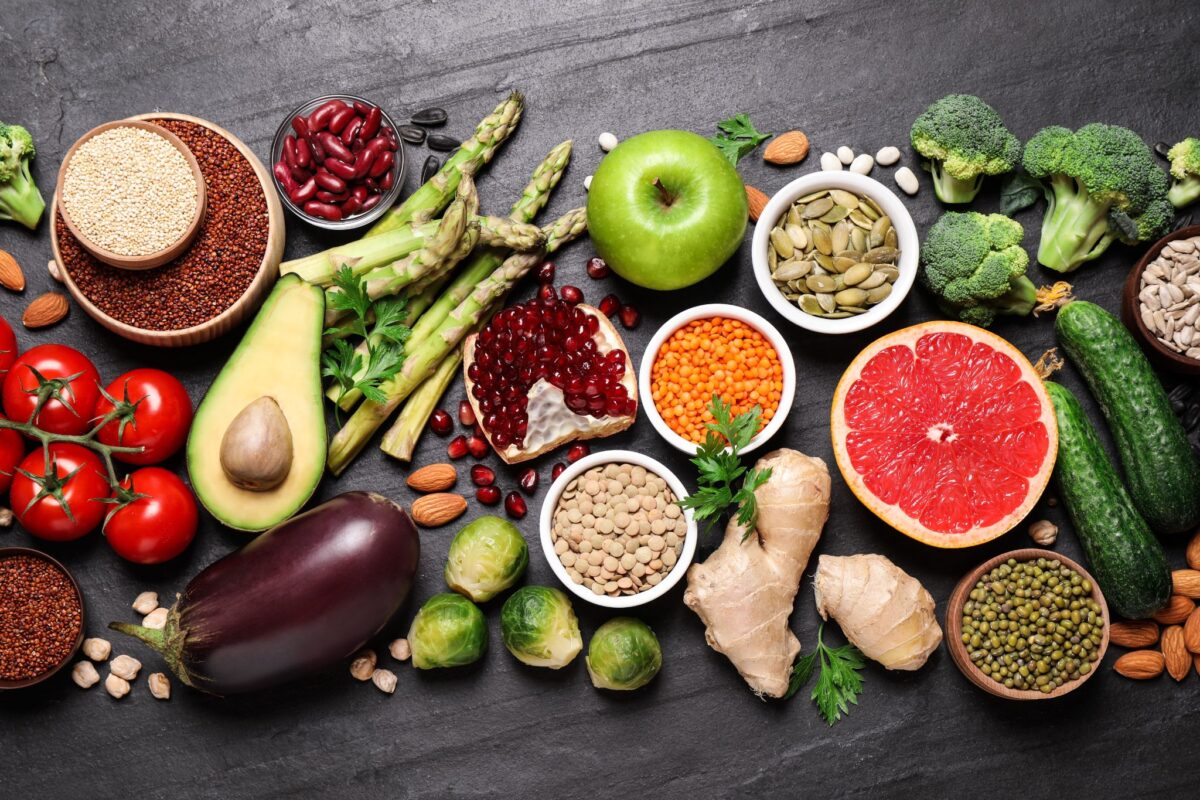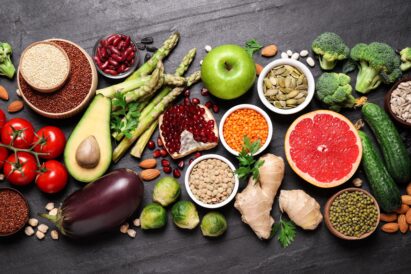Health & Wellness: The role of nutrition and lifestyle in preventing skin cancer
-
This June 24, 2014, photo shows people swimming in the sun at Mission Beach in San Diego.
-
Antioxidants are powerhouses when it comes to protecting the skin from damage caused by radiation, which is a major risk factor for skin cancer.

Gregory Bull, Associated Press
This June 24, 2014, photo shows people swimming in the sun at Mission Beach in San Diego.
As a state, Utah ranks high in many areas of health, including boasting a strong economy, low crime rates, financial stability, education, advanced infrastructure and a natural environment that offers opportunities. many outdoor activities.
The Beehive State is leading the nation in another category – albeit in a bad way. According to updated data from the Centers for Disease Control and Prevention, Utah is the runaway leader in cases of melanoma, the deadliest form of skin cancer.
The CDC report shows that in 2021, the most recent year for which statistics are available, there were 43.4 cases of melanoma per 100,000 people, nearly double the national average. This dubious distinction is nothing new, as Utah has posted the highest melanoma numbers for 13 of the past 16 years.
There are some clear risk factors that may make melanoma more common in Utah:
- About three-quarters of Utah’s population is white. Fair-skinned people are more prone to melanoma.
- Utahns tend to be more popular for outdoor activities and the higher altitude provides less ozone protection.
The good news is that certain steps can be taken to prevent skin cancer. Today, we’re going to look at how a combination of diet and lifestyle can empower individuals to take steps to reduce their risk of skin cancer.
Benefits of antioxidants

Courtesy of Shutterstock
Antioxidants are powerhouses when it comes to protecting the skin from damage caused by radiation, which is a major risk factor for skin cancer.
Antioxidants are skin protective agents when it comes to protecting the skin from damage caused by harmful radiation, which is a major risk factor for skin cancer.
According to the Skin Cancer Foundation, “UV exposure causes a lot of damage to the skin by producing free radicals, small unstable oxygen molecules that cause inflammation and damage cell function and DNA. This DNA damage can cause changes in your genes called mutations that lead to skin cancer.”
Some antioxidants (endogenous) are made by the body. However, our body also depends on external, or non-natural, sources for the rest of the antioxidants it needs. These come mainly through food. Whole grains, vegetables and fruits are rich sources of dietary antioxidants.
Good sources of antioxidants include:
- Berries.
- Apples.
- Avocado.
- Chicken.
- Cruciferous vegetables (cabbage, broccoli, Brussels sprouts, cauliflower, kale).
- Green tea.
- Mushrooms.
- Nuts.
- Olive oil.
- Potatoes.
- Tomato.
If you’re looking for an easy way to increase your antioxidant intake, these can be great additions to your diet.
Other nutritious foods
In addition to including foods rich in antioxidants, there are many other ingredients that you should consider adding to your menu when it comes to preventing skin cancer. They include the following:
Omega-3 fatty acids: Omega-3 fatty acids, especially found in oily fish, flaxseeds and walnuts, have anti-inflammatory properties that can help reduce the risk of skin cancer. Chronic inflammation is a known risk factor for cancer development, and including a diet rich in omega-3s can reduce this risk.
Polyphenols: Polyphenols, which are abundant in foods such as green tea, grapes and dark chocolate, have been studied for their anti-cancer properties. These compounds can protect skin cells from UV damage and may prevent the growth of cancerous cells.
Beta-carotene: This nutrient provides health benefits by converting vitamin A into the body. It is often recommended to consume beta carotene through a balanced diet with colorful fruits and vegetables – such as carrots, squash, potatoes, cantaloupe, apricots and mangoes – rather than supplements.
Lycopene: This carotenoid helps protect cells from oxidative stress and damage caused by UV rays. Research shows that foods rich in lycopene can strengthen the skin’s defense against UV damage, which reduces the risk of skin cancer. The same red pigment in lycopene that helps protect tomatoes from sun damage can also protect your skin in the same way. Lycopene is found in tomatoes, watermelon, guava, papaya, apricots, pink grapes and blood oranges.
Selenium: A large review of 16 studies involving more than 144,000 people reported that those with the most selenium had a 31% lower risk of cancer at any site and a 40% lower risk of death. it’s cancer. One to two Brazil nuts a day provide all the selenium you need. Meats such as chicken and grass-fed beef are also rich in these minerals.
Vitamins C and E: Found in citrus fruits, berries, nuts and seeds, these vitamins are known for their skin-protecting properties.
Vitamin D: Synthesized in the skin through exposure to sunlight and found in foods and supplements, vitamin D is important for bone health and immune function. Its role in the prevention of skin cancer is surprising. Although the body’s levels of vitamin D are boosted by moderate sun exposure, exposure to harmful ultraviolet rays increases the risk of skin cancer. Balancing sun exposure to maintain adequate levels of vitamin D while reducing the risk of skin cancer is important, and food sources or supplements can help achieve this balance without excessive UV exposure.
Zinc: Zinc is important for maintaining healthy skin and protecting against various skin conditions, including skin cancer. A small 2017 study of men in The American Journal of Clinical Nutrition found that a modest increase in dietary zinc helped replenish antioxidants and restore immune function. It also increased the level of proteins involved in DNA repair and reduced the type of DNA damage that can cause cancer. A lot of zinc can be found in beef and lamb, shellfish, and vegetables such as hummus, chickpeas, lentils and black beans.
Lifestyle choices and skin cancer prevention
A new study published by the American Cancer Society states that 40% of new cancer cases in adults 30 years and older, as well as half of all cancer deaths, are caused by preventable causes. This includes all types of cancer. Eating a healthy diet and exercising were the two lifestyle choices that showed the greatest reduction in cancer risk.
When it comes to skin cancer, proper sun protection is the first line of defense in prevention efforts. Simple but effective steps include:
- To use sunscreen: Regular application of a sunscreen with an SPF of 30 or higher can greatly reduce your exposure to harmful rays.
- Wearing protective clothing: Long-sleeved shirts, wide-brimmed hats and sunglasses that block harmful UV rays can provide additional protection.
- Looking for shade: Avoiding sunlight during peak hours can reduce exposure to harmful UV rays.
According to Dr. April Larson, MD, FAAD, and chief medical officer of PathologyWatch, a Utah-based company that specializes in digital dermatopathology services, avoiding tanning beds and regular self-exams are important preventative measures when it comes to of skin cancer.
“Tanning beds emit harmful radiation that can increase the risk of skin cancer,” Larson said. “It’s much safer to choose products to make up for your skin or accept your natural skin. Also, getting to know your skin and noticing any changes in moles or new growth can lead to early intervention and good health outcomes. Annual skin examinations are important for early detection.”
Synergistic effects of diet and lifestyle
The interaction between a healthy diet and healthy choices strengthens efforts to prevent and detect skin cancer. Here’s how they work together:
- Immunity: A diet rich in nutrients supports a strong immune system, which can help detect and destroy abnormal cells before they become cancerous.
- Reduced inflammation: Combining an anti-inflammatory diet with stress-reducing activities such as yoga and meditation can reduce levels of chronic inflammation, reducing the risk of cancer.
- Improved skin health: Hydration, proper nutrition and protective measures improve the health of the skin, making it less prone to damage and disease.
The role of nutrition and lifestyle in the prevention and detection of skin cancer is profound and effective. By consuming foods rich in antioxidants, omega-3 fatty acids and polyphenols, and combining them with sun protection practices and regular skin checks, individuals can significantly reduce their risk of developing skin cancer. . Empowering yourself with knowledge and making wise decisions can lead to a healthier and more sustainable life.
Remember, the steps you take today can pave the way for a cancer-free tomorrow.
Doug Fox is a project manager at Fullcast, a Silicon Slopes-based RevOps platform that allows companies to plan, manage and measure the performance of their revenue teams.
A little light
#Health #Wellness #role #nutrition #lifestyle #preventing #skin #cancer


